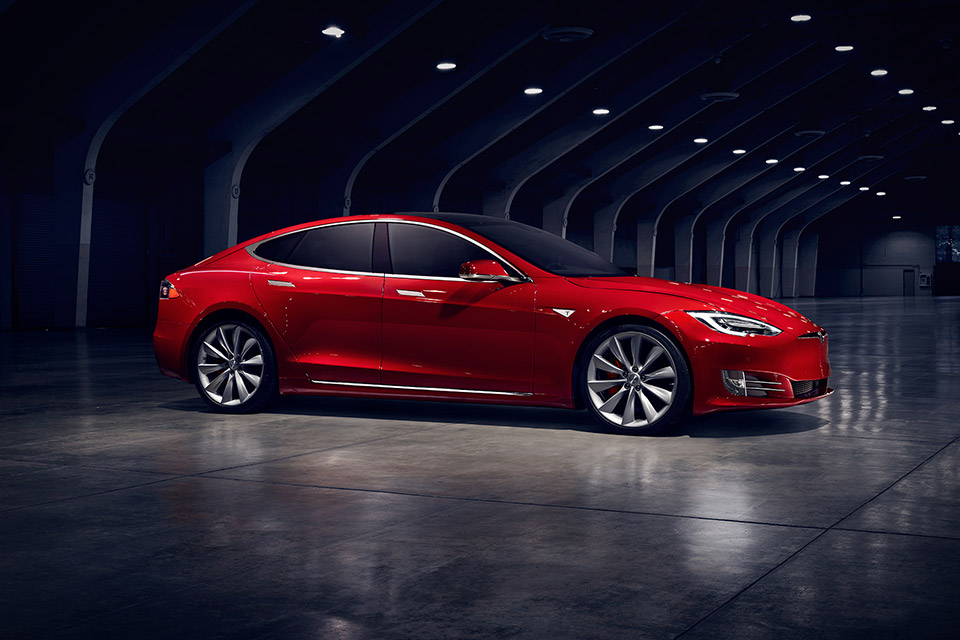Tesla Model S P100D Can Outdrag a McLaren F1

Tesla Model S For Sale
Tesla Motors continue to evolve the performance and range capabilities of the electric vehicle as demonstrated by their latest model, the Tesla Model S P100D.
It has taken Tesla Motors just 13 years to build an electric vehicle that can do 0-60mph in 2.5s. For reference, it took gas-powered vehicles over a century to do the same.
Tesla’s claimed 0-60mph time would tie the P100D with the Porsche 911 Turbo S as the fastest accelerating vehicle in production.
Tesla CEO Elon Musk in a conference call with Road and Track acknowledged the feat humbly: “I think it’s quite a milestone that the fastest car in the world, of any kind, is electric. I think this is really gonna send the message that sustainable transport is here to stay.”
One could make the argument that the Model S P100D with the Ludicrous Speed Upgrade — which is included at no-cost — is the quickest production car in history, if we are to overlook the ultra-limited, ultra-expensive Porsche 918 Spyder and Ferrari LaFerrari. The 918 Spyder and LaFerrari were clocked in independent 0-60mph tests at 2.2s and 2.4s, respectively, whereas the P100D has yet to be independently tested.
The P100D, with its new 100kWh battery, has an estimated range of 315 miles, improving upon the P90D’s 294-mile range (the P90D has a 90kWh battery). That means the P100D has at least three times the range of any other electric vehicle currently available, most of which can go no more than 100 miles on one charge.
The complexity of producing more powerful batteries has proved a difficult obstacle for electric vehicle manufacturers, although Tesla always seem to be a step ahead. “It gets exponentially harder to increase energy density,” confessed Musk, commenting on the intricacies of manufacturing the new 100kWh battery pack.
Musk also revealed that the actual battery cells are the same, but that the internal systems within the battery pack have been redesigned. Reports from the website LiveScience speculate that Tesla have introduced a new cooling system that uses thin aluminum fins between the battery cells to draw heat away. The aluminum fins take up less space than the cooling ribbon originally used, freeing up more space for battery cells.
The shape and physical dimensions of the new battery pack remain the same as the 90kWh pack used on the Model S P90D, meaning future and existing P90D owners can upgrade to the new 100kWh battery directly through Tesla. Customers who have a P90D on order can upgrade to the P100D’s battery pack for $10,000, while current P90D owners can do the same by having their battery pack swapped out for the newer one for $20,000.
Tesla’s website indicates the Model S P100D is currently available for order with an October delivery date, at a starting price of $134,500.
Tesla’s SUV, the Model X, will also be available with the P100D drivetrain for $135,500. No delivery date is shown for the Model X, which will do 0-60mph in an estimated 2.9s and have a 289-mile range.

